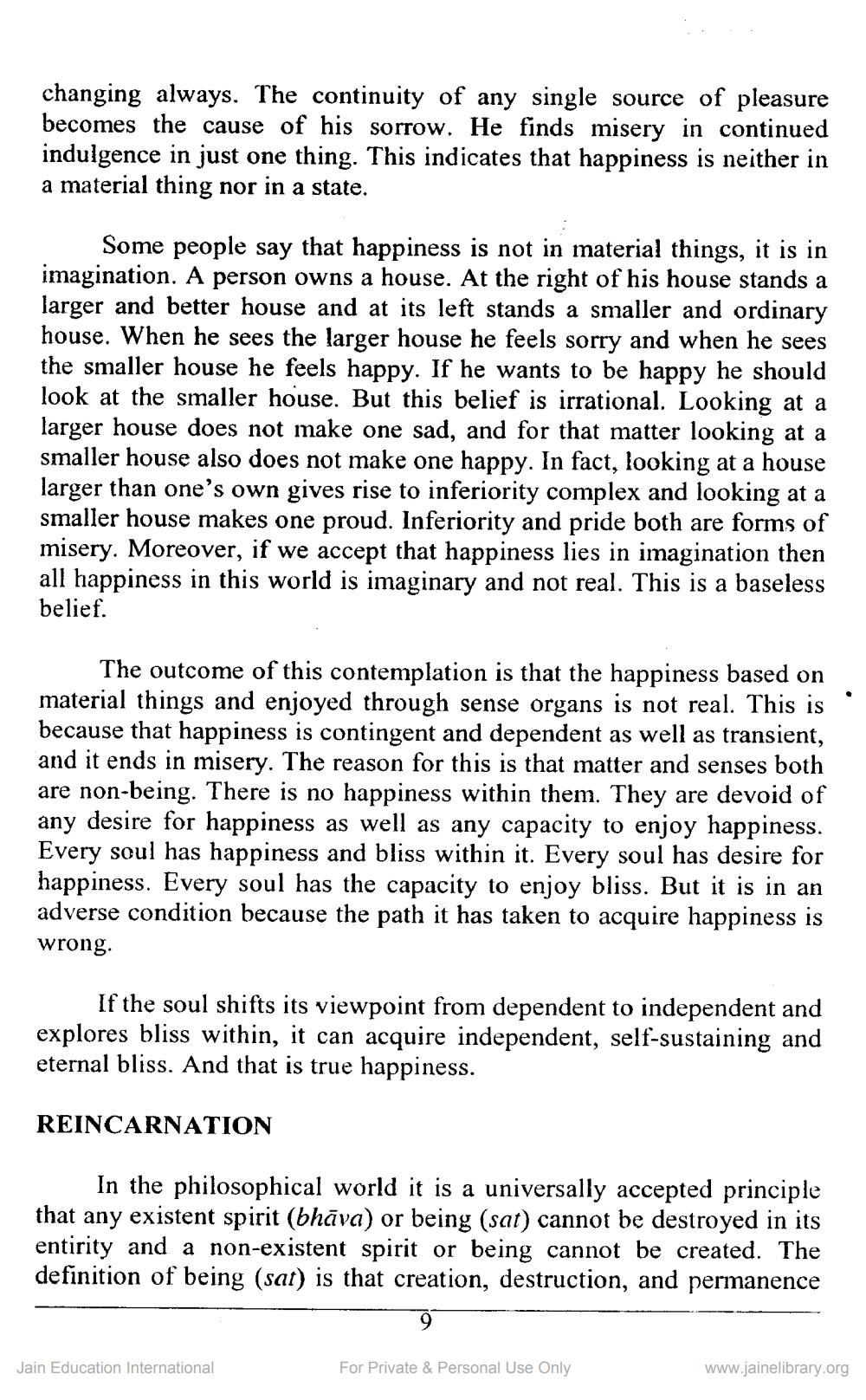________________
changing always. The continuity of any single source of pleasure becomes the cause of his sorrow. He finds misery in continued indulgence in just one thing. This indicates that happiness is neither in a material thing nor in a state.
Some people say that happiness is not in material things, it is in imagination. A person owns a house. At the right of his house stands a larger and better house and at its left stands a smaller and ordinary house. When he sees the larger house he feels sorry and when he sees the smaller house he feels happy. If he wants to be happy he should look at the smaller house. But this belief is irrational. Looking at a larger house does not make one sad, and for that matter looking at a smaller house also does not make one happy. In fact, looking at a house larger than one's own gives rise to inferiority complex and looking at a smaller house makes one proud. Inferiority and pride both are forms of misery. Moreover, if we accept that happiness lies in imagination then all happiness in this world is imaginary and not real. This is a baseless belief.
The outcome of this contemplation is that the happiness based on material things and enjoyed through sense organs is not real. This is because that happiness is contingent and dependent as well as transient, and it ends in misery. The reason for this is that matter and senses both are non-being. There is no happiness within them. They are devoid of any desire for happiness as well as any capacity to enjoy happiness. Every soul has happiness and bliss within it. Every soul has desire for happiness. Every soul has the capacity to enjoy bliss. But it is in an adverse condition because the path it has taken to acquire happiness is wrong.
If the soul shifts its viewpoint from dependent to independent and explores bliss within, it can acquire independent, self-sustaining and eternal bliss. And that is true happiness.
REINCARNATION
In the philosophical world it is a universally accepted principle that any existent spirit (bhāva) or being (sat) cannot be destroyed in its entirity and a non-existent spirit or being cannot be created. The definition of being (sat) is that creation, destruction, and permanence
Jain Education International
For Private & Personal Use Only
www.jainelibrary.org




